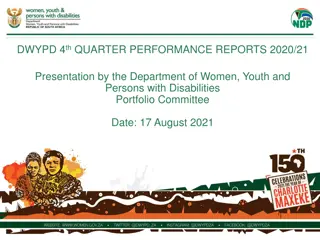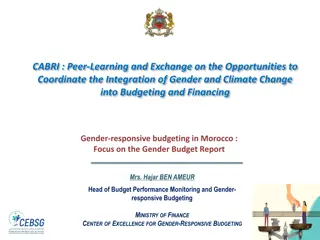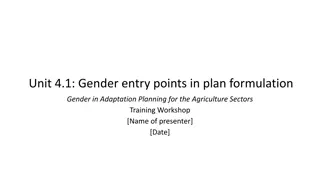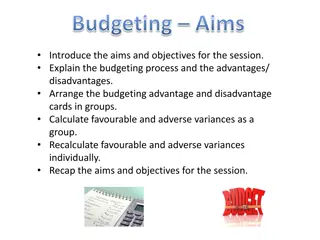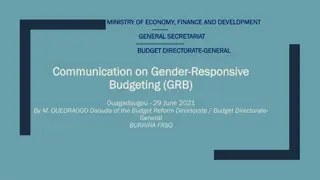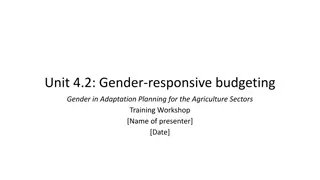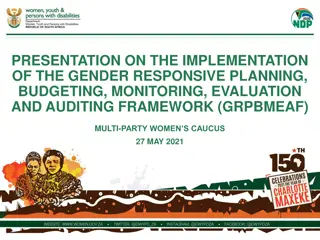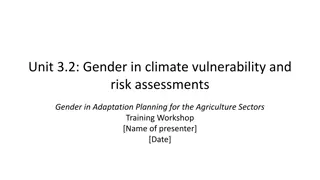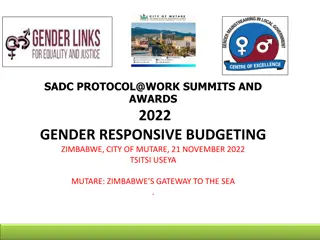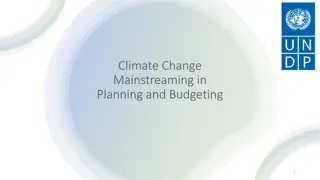Peer Learning and Exchange: Advancing Gender-Responsive Climate Budgeting
Countries recently converged to discuss integrating gender and climate change into national planning and budgeting. With 16 countries and 82 government officials participating, there was a focus on gender-responsive budgeting experiences and the emerging field of gender-responsive climate budgeting. The event highlighted the need for coordinated efforts and showcased several countries already taking initial steps towards gender-responsive climate budgeting. Plans for future events and support initiatives were also outlined.
Download Presentation

Please find below an Image/Link to download the presentation.
The content on the website is provided AS IS for your information and personal use only. It may not be sold, licensed, or shared on other websites without obtaining consent from the author. Download presentation by click this link. If you encounter any issues during the download, it is possible that the publisher has removed the file from their server.
E N D
Presentation Transcript
Peer learning and exchange: key takeaways Over the last two days countries have come together to discuss the opportunities to coordinate gender and climate change into national planning, budgeting and financing 16 countries participated 82 government officials from ministries of finance, budget, environment/climate, gender/women s affairs Countries have more experience with gender responsive budgeting. In some countries this experience spans over 20 years and has been constantly evolving. Although experience across countries varies, gender responsive budgeting has interventions that cover the whole budget cycle eg. Strategies and plans (Liberia, Burkina Faso) Budget formation (Rwanda) Budget tagging (Capo Verde) Reporting (Morocco and Capo Verde) Evaluation (Mozambique)
Gender Responsive Climate Budgeting Gender responsive climate budgeting is relatively new, with many countries having plans in place to introduce reforms Country presentations have shown that there is a solid foundation to build on and that important lessons can be drawn from the experience with gender responsive budgeting eg. There is complementarity between the two Use of similar techniques and institutional mandates that can be extended to cover both gender and climate Climate responsive budgeting is likely to requires a similar commitment, - capacity, data and clear political leadership Countries are already taking the first steps towards gender responsive climate budgeting, eg Nigeria, Eswatini, Rwanda, etc Through the IBFCCA program, we hope to support ministries of finance as they integrate gender and climate change into their public financial management systems component B
Next steps Policy brief All session material is available on our website Follow-on event August 2021 : bring together countries that are in the process of introducing gender and climate expenditure tracking reforms IBFCCA 3rdpeer learning and exchange 14-15 September o strengthening climate budget oversight, transparency and accountability o Country actions under component B to strengthen climate responsive budgeting Twinning between countries face similar contexts or reforms Thank you all - Presenters, Facilitators, Program partners (IBP, IIED, UNDP and Sida) Other partners (GiZ, AfDB), everyone





